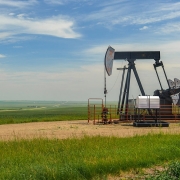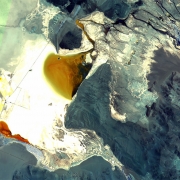Danielle Smith’s Pro-Growth Rebellion is a Sign of Things to Come
Canada, even more than the United States, stands at the edge of a great historic opportunity. As worldwide demand for raw materials, including those needed for the much ballyhooed “energy transition,” expands, the country could profit massively from its remarkable array of resources.
Yet, as the recent conflict between Alberta Premier Danielle Smith and the current federal government shows, Canada, like the United States, is not of one mind about its economic future. Recently, Smith told Prime Minister Justin Trudeau that she will “fight” for the province’s oil industry, which accounts for upwards of 30 per cent of the province’s economy. Attempts to push back on Ottawa’s green agenda could also foster something of a constitutional crisis.
This is bigger than merely a battle between one province and the federal government; it’s a divide that could roil Canadian politics, much as is occurring in other resource-rich countries like Australia and the U.S. This reflects competing visions of the future: one that seeks to expand the national economy by tapping its extraordinary agricultural and mineral wealth, and another that seeks to curb any expansion of resource development.
In pure economic terms, the world needs what Canada has, including commodities that it could produce with far better environmental control than, say, Indonesia, the Congo or Bolivia. Eschewing the resource sector would pose a fundamental problem for a country that has long depended on resources for its economic prosperity.
True, Canada produces some high-quality media, but its output of filmed entertainment is dwarfed by the U.S., China, India and the United Kingdom, while in technology products, it is hardly a dominant player. Sorry, Justin, but good looks are not your country’s big export; instead, it’s the great green devil — oil and gas — along with cars, another hated product, and other raw materials. Canada is also the world’s fifth-largest exporter of agricultural products.
Like fossil fuels, agriculture has also become a target of environmentalists, who worry about farming’s impact on climate change. Yet not everything about “net-zero” goals may be bad for Canada. Canada could see much growth in the minerals demanded by net-zero requirements, including rare earth metals, cobalt and, perhaps most importantly, uranium.
The biggest obstacle, ironically, may prove to be the environmentalists, who seem willing to restrict mining and production in developed countries, even though it leads to massive exploitation of land and people in the far less eco-friendly developing world.
Many western elites, citing climate change, actually see degrowth as the future, an approach likely to make most people poorer. In contrast, a growth strategy could make Canada a richer and more egalitarian country, while providing developing countries with the goods they need to grow.
Our ruling classes seem to be slow to realize that the future lies not in the long developed countries, but In booming places like the Gulf states and India. They represent ideal markets for Canada’s bounty of minerals, food, energy and lumber.
Read the rest of this piece at National Post.
Joel Kotkin is the author of The Coming of Neo-Feudalism: A Warning to the Global Middle Class. He is the Roger Hobbs Presidential Fellow in Urban Futures at Chapman University and Executive Director for Urban Reform Institute. Learn more at joelkotkin.com and follow him on Twitter @joelkotkin.
Homepage photo: Kevin He via Flickr under CC 2.0 License.









